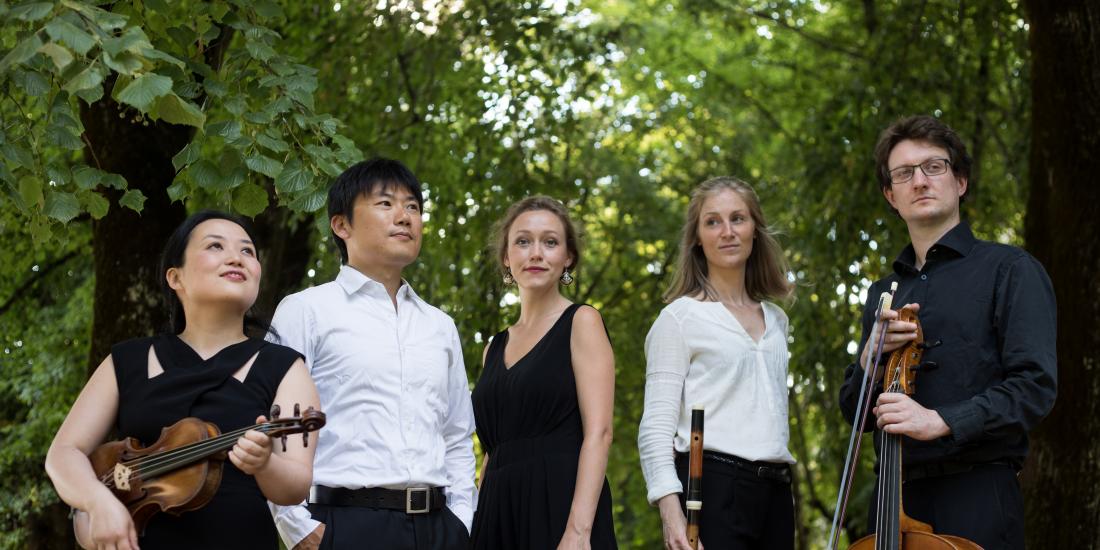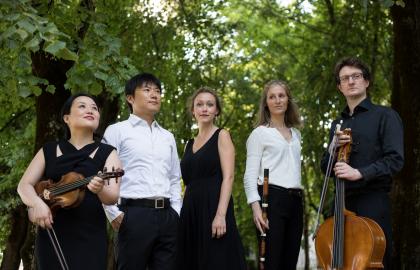How did your ensemble come together?
La Française is a chamber music ensemble founded in 2013 by flautist Aude Lestienne. From the beginning, we were interested in the French Baroque music repertoire. Over time, we came to specialise in music from the very end of the French Baroque, what is known as rocaille art. This music is full of sensitivity and fantasy, and one which we find particularly moving.
What is your philosophy?
We have chosen Cicero’s maxim Docere, delectare, movere (to teach, to delight, to move), which expresses our desire to research, to transmit, to touch people’s hearts... We like to “resurrect” the works of forgotten composers like Guillemain, but also to transport the audience into our world of rocaille with multidisciplinary performances. We want to promote a vision of culture that is complex, rich, learned, but always accessible and exhilarating.
Who was Louis-Gabriel Guillemain?
Louis-Gabriel Guillemain was a violinist. Around 1737, he was appointed “Musicien Ordinaire de la Chapelle et de la Chambre du Roi”, a very prestigious position at the time. He was part of the so‑called “French violin school” alongside Leclair, Mondonville, Francœur, and Quentin. Guillemain was very famous in his time and was subsequently completely forgotten. Yet, he left us an important body of work: 18 books of chamber music. It was said that he was “a great master” and that “his works were filled with the most exquisite beauties”.
What will you be playing?
Among his 18 books, Guillemain left two books of quartets to which he also gave the title of “conversations galantes et amusantes”. Opus 12, published in 1743, is known to musicians. But Opus 17, published in 1756, has never been recorded in full. And yet the six quartets of this opus are excellent! It’s very inventive music, often highly virtuoso and moving, and it really deserves to be heard.
What is your greatest dream as an ensemble?
To continue to work together, to research, discover, perform, to create, to have fun and to make people dream!


